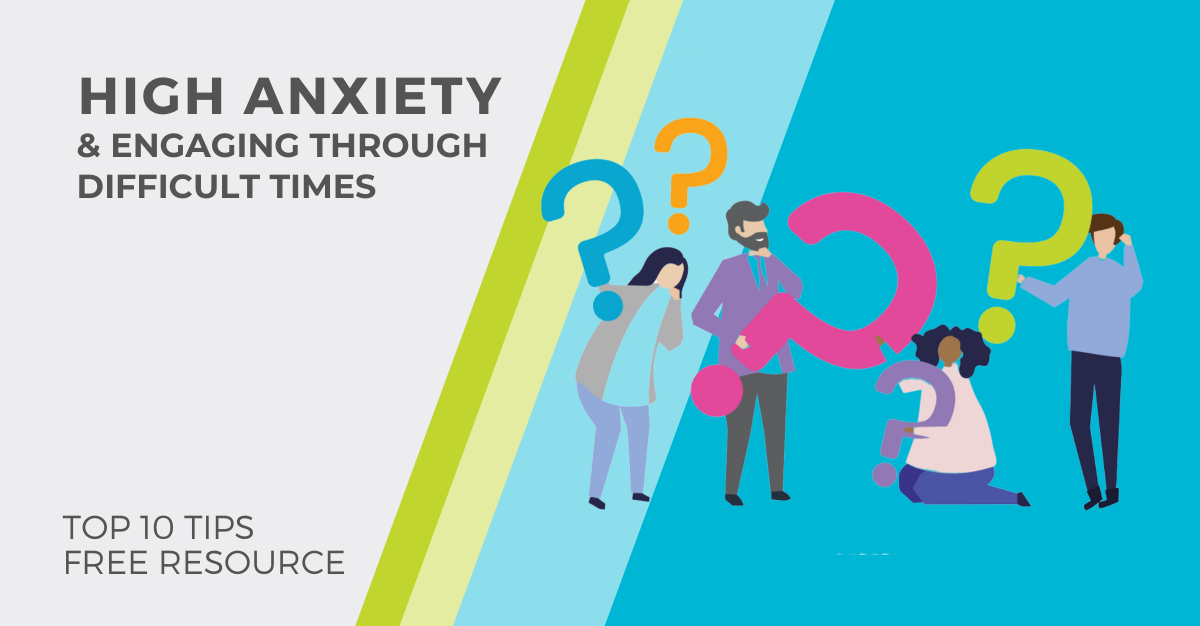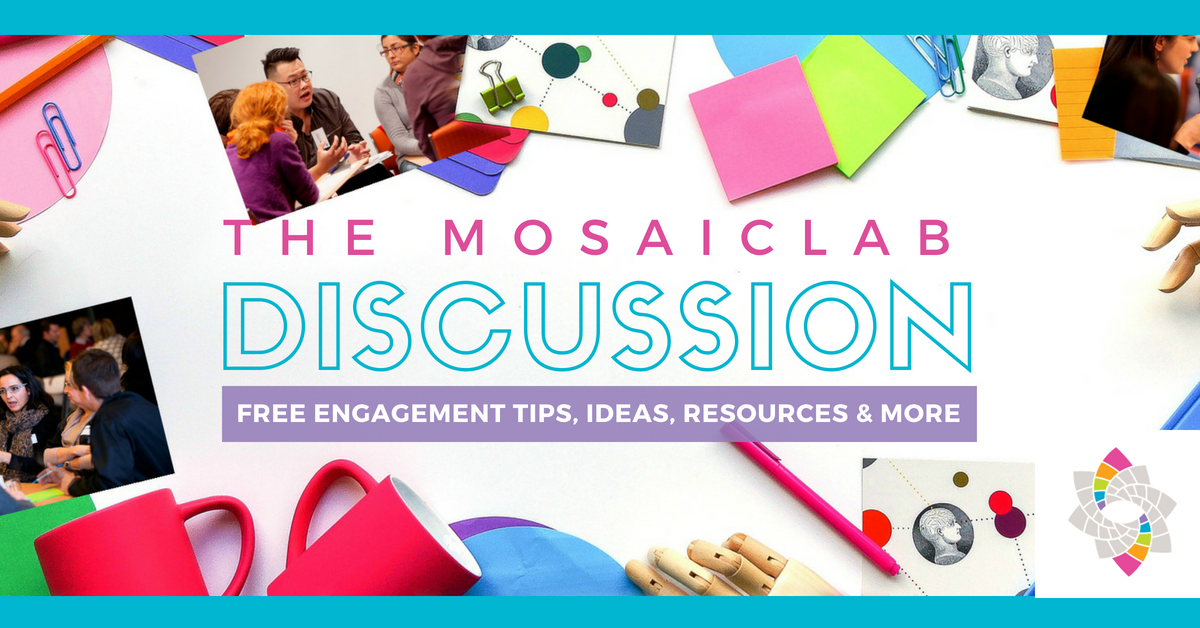Humans everywhere are witnessing or living through multiple disasters at once - fires, floods, pandemic, wars and economic strain. The people at the centre of these events are suffering, and many of us, even if not directly impacted, are experiencing a range of emotions including distress, helplessness, anger, anxiety and fear.
There are ways we can make a small difference and contribute to efforts to alleviate this suffering (we’ve provided some links at the end of this post). We can also help each other – positively impacting the people we connect with every day through meaningful interactions that support and help us to cope.
Humans seek connection, and in times of crisis, this need is enhanced. So how can we talk to each other in a way that helps us to process our own emotions and meet our own needs while also being considerate and supportive of the needs of others? Sometimes, we’re discussing topics that feel not only distressing, but emotionally charged and possibly divisive. Avoiding them isn’t sustainable or helpful, however, some of us feel an intense need to distance ourselves from them to avoid discomfort.
As facilitators, our constant focus is on how we have better, more meaningful conversations. Facilitation skills aren’t just applicable to large format meetings and public engagement processes – they are life skills that apply to any interaction we have with others – family, friends, colleagues, neighbours, even the telemarketer at the other end of the phone! You name it, we are interacting in many ways each day.
NINE WAYS TO HAVE BETTER, EVERYDAY CONVERSATIONS AROUND DISTRESSING EVENTS
With this in mind, we’ve put together a list of what we call little ‘f’ facilitation skills – microskills that you can apply every day. Some of these skills are particularly useful in a time of high emotion, and they’re likely to benefit both you and the people around you.
Step towards hard conversations
If you know people are struggling, you can ‘step towards’ a conversation rather than shying away from or ignoring it. This gives both you and others an opening and opportunity to process what you’re going through. Simple phrases such as ‘how are you feeling about …?’ and ‘what reactions have you had to...?’ are great conversation starters.
Keep it neutral
Once you’ve opened up the conversation, avoid wading in headfirst with an opinion. Allow people to talk about what they are experiencing and stay neutral, processing what you hear.
Listen first
As Steven R. Covey suggests in the 7 Habits of Highly Effective People, seek first to understand, then to be understood. If someone is experiencing pain, distress or high emotion, listen to them first with the intent of understanding, not replying or solving the problem. If you have something to express, you’re going to be heard differently by that person once they’ve released what they’re feeling and felt fully heard.
Get comfortable with emotion
Many of us have grown up in environments where emotional expression was uncomfortable, or where emotions were something that needed ‘fixing’. That’s why some people find it difficult to simply ‘sit with’ someone’s emotion without wanting to save them from it. Remember that emotions are normal, and that humans are designed to feel and bear them – in time nearly every emotion passes or transforms. They’re going to pop up more often in our current environment, so do what it takes to get yourself prepared to hear them. Find a way to get comfortable hearing these emotions, even if that’s not how you normally operate.
Slow down
People experiencing overwhelm or distress need a slower conversation. Make the space and create the time necessary to stop and hear them. Rushing someone can feel, for them, like they’re being dismissed.
Acknowledge
Acknowledging an emotion helps people to carry it. You’re (probably!) not a qualified counsellor, and it’s best not to try to counsel others. However, you can acknowledge what people are feeling and avoid dismissing or denying it. Sometimes there’s an emotion underneath what they are expressing – for example, grief and fear can sit behind anger, so stay with the person you’re talking to and allow them to express what’s happening for them.
Once acknowledged, emotions tend to lose a little of their strength, allowing those carrying them some relief so they can focus on something else that has meaning for them. This might mean they have space to focus on your needs and/or provide support to someone else.
Think about language and tone
When a conversation enters difficult territory, many of us don’t know what to say. Reflecting back what you’re hearing is important and doesn’t require you to think of something clever or helpful to add. It’s best to avoid saying ‘I know how you feel’ or ‘You should/must/need to X’ where possible.
Instead, you might say something to indicate what you’ve observed or heard like ‘I’ve noticed many people saying they are feeling anxious – this is a frightening time’. Or you might explore what the person needs through questions such as ‘do you have enough support around you and can I help in any way?’
Help people do something proactive
Most of us want to make a difference and influencing something in a positive way helps us to cope with what we’re bearing emotionally. Discussing pathways or activities that make a difference (at the right moment, not in the middle of someone expressing their emotion!) can help to connect you to others and, together, find some relief. Positive actions don’t have to be related to the immediate crisis causing the emotion.
Reflect on your own needs
The above microskills can be hard to practice if you’re feeling highly distressed or emotional yourself. Recognise that everyone is feeling pain, and that includes you. Do what you need to do to process and manage how you feel before attempting to support others and reach out to trusted people and support networks if you need them.
ENGAGING WITH COMMUNITIES THROUGH DIFFICULT TIMES
The above skills also relate to (and most can translate into) engagement work with communities during or following a difficult time or event.
Back in 2020, as COVID-19 hit Australia, we posted about 10 Tips for Engaging Through Difficult Times and High Anxiety. While the events around us have changed over time, these tips are relevant to any community engagement work happening in a challenging, emotionally difficult environment.
TANGIBLE WAYS TO HELP THOSE AFFECTED
If you would like to support those directly affected by the QLD Floods please consider donating to a registered charity. The Queensland Government has provided a list of charities raising funds to help these communities.
Global Citizen has pulled together a list of things you can do to support the people of Ukraine.
join our monthly newsletter
The Discussion shares the latest engagement news, ideas, case studies and more.
















